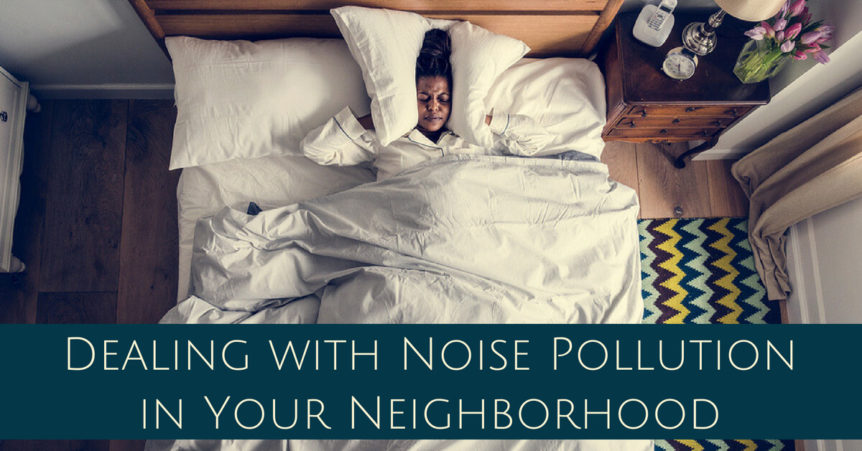We live in an increasingly loud world. Our workplaces contain loud machinery; every day on the street we are exposed the sirens, large trucks, construction work, and more; when we relax we do so in front of blaring televisions or at movie theaters with ear-screeching sounds. You more than likely have not even noticed the loudness of you everyday life—it is just that normal to you.
Noise Pollution on the Rise
Many people and organizations are becoming more aware of the dangers of noise pollution, however. The World Health Organization (WHO) warns that excessive noise “seriously harms human health and interferes with people’s daily activities at school, at work, at home and during leisure time.” The U.S. Census Bureau is also paying attention to the role of noise pollution in the United States. Their data shows that Americans think of noise as the biggest problem affecting where they live—it is a bigger problem in American neighborhoods than crime.
The American Speech-Language-Hearing Association (ASHA) has been looking into the effects of noise pollution as well, and they have data that supports the argument that our worlds are getting louder. They show that about 30 million Americans have regular exposure to dangerous noise levels. This is 10 million people more people experiencing toxic noise pollution than a few years ago.
What Causes Noise Pollution?
There are many causes of noise pollution out in the world, but one of the biggest problems—one of the biggest contributors to dangerous noise level—is simple: traffic. Noise pollution is measured by decibels, or “dB,” which is the measurement of the loudness of noise and sound. Exposure to noise above 80 decibels can harmful, depending on how long you are exposed. Most city sounds are far away and above this 80 dB mark: garbage trucks can register at 100 dB, and a honking car horn can reach 110 dB. Sirens are a frequent cause of noise pollution. In fact, ambulance sirens clock in at 120 dB.
The Effects of Noise Pollution
There are many health effects of exposure to noise pollution. A literature review that was recently published in European Cardiology Review argued that there is a connection between exposure to these kinds of transportation noise and high blood pressure. It also argued that noise pollution should be considered as a new risk factor for heart disease. Noise pollution can quite simply be annoying, and a 2016 German study suggests that there are increased rates of depression and anxiety resulting from increasing levels of noise pollution.
Noise pollution can affect people’s health in other ways. It has been linked to difficulties sleeping, pain and fatigue, poor performance at work and at school, and speech problems. Because of the increased stress levels that noise pollution can cause, it has also been linked to hormonal problems, especially as they effect how people’s metabolism and immune system’s function. Noise pollution can also exacerbate tinnitus, which is a persistent ringing, buzzing, clicking, or whirring that only the hearer can experience.
Perhaps most importantly, noise pollution can contribute to hearing loss. Your first protection against noise pollution related hearing loss is to simply protect your ears. There are many low-cost ear plugs that you can purchase—it is a good idea to keep sets of ear plugs in common places, such as by your front door so you can grab them as you leave the house, in your handbag, in your glovebox, and at work. Inserting ear plugs in advance of being in loud places will diminish the dB levels your ears are exposed to. If you do not have ear plugs handy, you should simply cover your ears when you are exposed to sudden and temporary loud noises, as happens when vehicles such as fire trucks and police cars drive by with their sirens on.
One big culprit of hearing loss are in-ear headphones, or earbuds. These small devices pipe loud sounds directly into your ear canal—and we often turn our headphones up to maximum volume when we are out and about in our day, ensuring that we can hear our music or podcasts over the cars, trucks, sirens, trains, buses, and loud vehicles that we are exposed to. Limit your listening time when using earbuds, or simply switch to over-ear headphones.
Your Hearing Health
Simply being aware of noise pollution in your environment will go a long way for understanding what your best “treatment” methods are. If you take time to assess your hearing health needs and take steps to protect your hearing, you will positively impact your overall physical and mental health. Contact us at Neighborhood Hearing Aid Center today to learn more about hearing tests.

